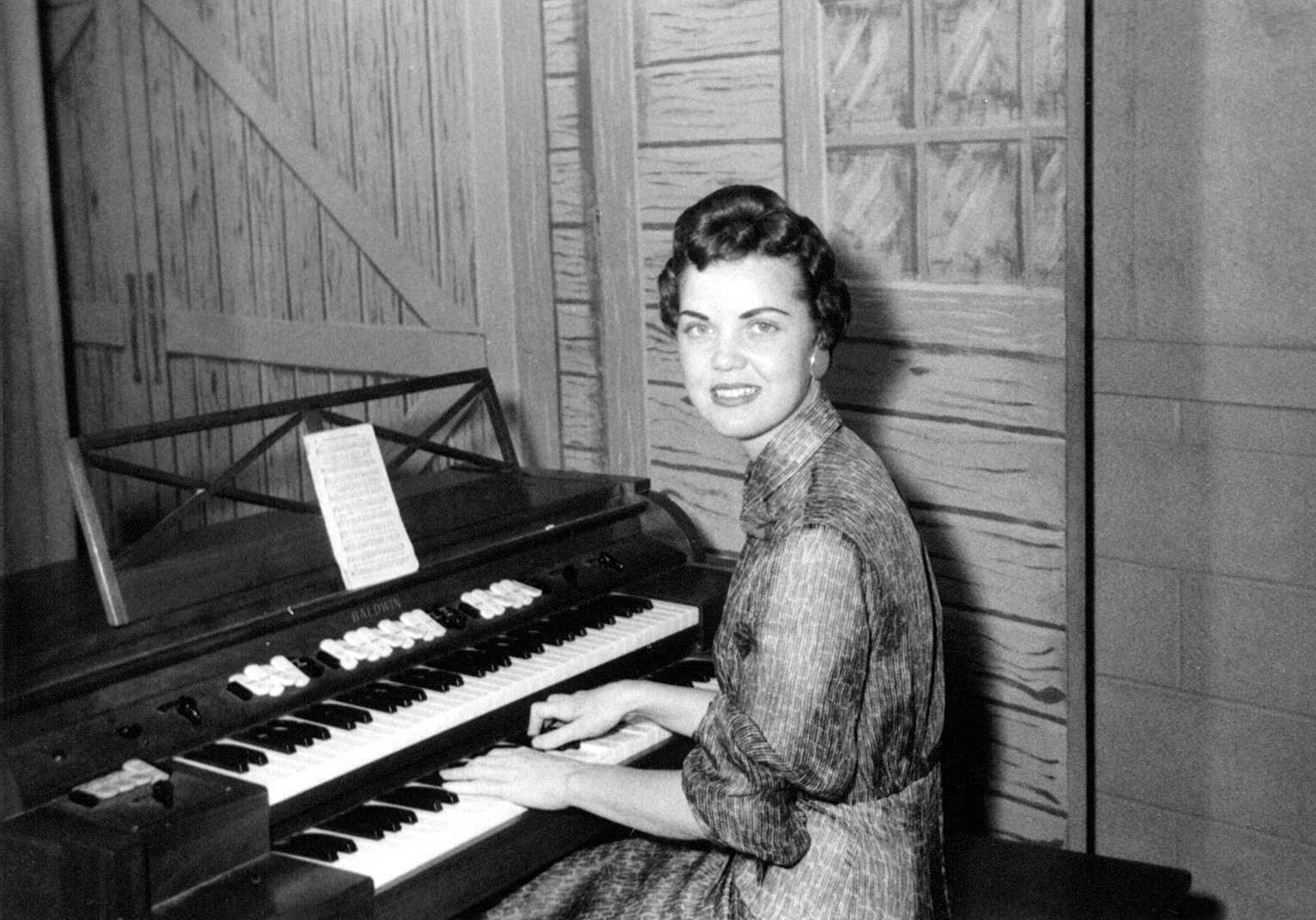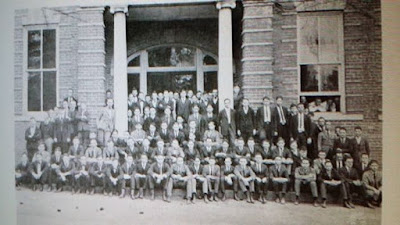HAVING PURSUED A COURSE OF SENSUALITY, LUSTS: peporeumenous (RMPMPA) en aselgeiais epithumiais: (Mk 7:22; 2Cor 12:21; Gal 5:19; Eph 4:19; Jude 1:4)
Having pursued (4198) (poreuomai from poros = a passing or passage) means to go from one place to another and is used in 1Pe 3:22 to describe Christ's ascension. Peter uses poreuomai to picture the unregenerate lifestyles of the pagans as a journey, traveling as it were from one sinful destination to another.
Having pursued is in the perfect tense which Vincent says is an inferential reference to a course of life now done with.Jude uses this same verb recording that..."In the last time there shall be mockers, following (poreuomai) after their own ungodly lusts." (Jude 1:18)
Now Peter describes the will of the Gentiles, recording 6 ugly sins that characterized their will and not God's will. Note all 6 evils mentioned here are in the plural, indicating the variety and frequency of these vices! It has been observed that all 6 of these vices were pagan excesses often connected with the practice of idolatry and celebrations to the honor of heathen gods.
Having pursued - This is more literally "having walked in" which identifies all 6 of these sins as in the locative case with preceding preposition "en" (English = in).
Sensuality (766) (aselgeia [word study] from aselges = licentious <> a = negates next word + selges = continent) originally referred to any excess or lack of restraint but came to convey the idea of shameless excess and the absence of restraint, especially with sexual excess. Thus like koite, aselgeia was used almost exclusively of especially lewd sexual immorality, of uninhibited and unabashed lasciviousness. It refers to the kind of sexual debauchery and abandonment that characterizes much of modern society and that is often flaunted almost as a badge of distinction!
Sensuality (766) (aselgeia [word study] from aselges = licentious <> a = negates next word + selges = continent) originally referred to any excess or lack of restraint but came to convey the idea of shameless excess and the absence of restraint, especially with sexual excess. Thus like koite, aselgeia was used almost exclusively of especially lewd sexual immorality, of uninhibited and unabashed lasciviousness. It refers to the kind of sexual debauchery and abandonment that characterizes much of modern society and that is often flaunted almost as a badge of distinction!
refers to uninhibited sexual indulgence without shame and without concern for what others think or how they may be affected (or infected). They have no concern about even their reputation, much less their character.
Aselgeia indicates indecency, wanton behavior, and a complete lack of restraint. In his second letter, Peter uses the word to describe the "filthy" lifestyle of the people of Sodom (2Pe 2:7-). The dominating idea behind the word is that of shameless conduct with emphasis on sensuality and behavior that shocks public decency.
- 10x in 10v - Mark 7:22; Rom 13:13; 2 Cor 12:21; Gal 5:19; Eph 4:19; 1 Pet 4:3; 2 Pet 2:2, 7, 18; Jude 1:4. NAS = licentiousness(1), sensual(1), sensuality(8).
The Greeks defined that acknowledges no restraints, dares whatsoever its caprice and wanton insolence may suggest.pictures sin as an inordinate indulgence of appetites to the extent of violating a sense of public decency. This word pictures unbridled, unrestrained living, all sorts of evil involving lack of self-restraint.
Barclay writes that does not solely mean sexual uncleanness; it is sheer wanton insolence. As Basil defined it, "It is that attitude of the soul which has never borne and never will bear the pain of discipline." It is the insolence that knows no restraint, that has no sense of the decencies of things, that will dare anything that wanton caprice demands, that is careless of public opinion and its own good name so long as it gets what it wants...It has been defined as "readiness for any pleasure."...The great characteristic of is this—the bad man usually tries to hide his sin (they have enough respect for common decency not to wish to be found out); but the man who has sex in his soul does not care how much he shocks public opinion so long as he can gratify his desires...the man who is guilty of is that he is lost to decency and to shame... he does not care who sees his sin. It is not that he arrogantly and proudly flaunts it; it is simply that he can publicly do the most shameless things, because he has ceased to care for decency at all...Sin can get such a grip of a man that he is lost to decency and shame. He is like a drug taker who first takes the drug in secret, but comes to a stage when he openly pleads for the drug on which he has become dependent. A man can become such a slave of liquor that he does not care who sees him drunk. A man can let his sexual desires so master him that he does not care who sees him satisfy them...It has been defined as "readiness for any pleasure."...Jezebel was the classic instance of sextuality when she built a heathen shrine in Jerusalem the Holy City. Josephus ascribed it to Jezebel when she built a temple to Baal in Jerusalem. The idea is that of a man who is so far gone in desire that he has ceased to care what people say or think... Aselgeia is the insolently selfish spirit, which is lost to honour, and which will take what it wants, where it wants, in shameless disregard of God and man. (Barclay, W: The Daily Study Bible Series, Rev. ed. Philadelphia: The Westminster Press)
DRUNKENNESS (habitual), CAROUSING: oinophlugiais, komois: (2Sa 3:28; Pr 23:29-35; Isa 5:11; 28:7; Eph 5:18)
Drunkenness (3632) (oinophlugia from oinos = wine + phluo = to bubble up, to overflow) means literally to be bubbling over with wine! What a picture of a drunken orgy and debauchery!
Vincent notes that this word is used...Only here in New Testament. The kindred verb occurs in the Septuagint, Deut. 21:20; Isa. 56:12. From oinos, wine, and phleo or phluo, to teem with abundance; thence to boil over or bubble up, overflow. It is the excessive, insatiate desire for drink, from which comes the use of the word for the indulgence of the desire — debauch. So Rev., wine-bibbings.
Carousing (2970) (komos) originally referred to a band of friends who accompanied a victor in a military engagement or athletic contest on his way home, singing with rejoicing and praises to the victor. But the word "degenerated:" until it came to mean "carousal" or a noisy, nocturnal and riotous procession of half drunken revelers and frolicsome fellows who after supper paraded through the streets at night with torches and music in honor of Bacchus or some other deity, singing and playing before houses of male and female friends (and causing a major public disturbance). Hence komos generally refers to feasts and drinking parties that are protracted till late at night and indulge in revelry.
describes the kind of revelry which lowers a man’s self and is a nuisance to others...A komos was a band of friends who accompanied a victor of the games after his victory. They danced and laughed and sang his praises. It also described the bands of the devotees of Bacchus, god of wine. It describes what in regency England would have been called a rout. It means unrestrained revelry, enjoyment that has degenerated into license. (Barclay, W: The Daily Study Bible Series, Rev. ed. Philadelphia: The Westminster Press)
DRINKING PARTIES AND ABOMINABLE IDOLATRIES: potois kai athemitois eidololatriais: (Gal 5:21) (1Ki 21:26; 2Chr 15:8; Isa 65:4; Jer 16:18; Rev 17:4,5)
Abominable (111) (athemitos from a = negative + themis = statute, an adjective from themis = law) is literally contrary to statute, and thus illegal or unlawful. It describes that which is forbidden.
Vincent writes...More literally, unlawful, emphasizing the idolatries as violations of divine law.Athemitos is used in the Apocryphal book of 2 Maccabees to describe unlawful sacrifices.
And he (Peter is speaking and is the one who uses athemitos) said to them, "You yourselves know how unlawful (athemitos) it is for a man who is a Jew to associate with a foreigner or to visit him; and yet God has shown me that I should not call any man unholy or unclean.
Since idolatries were not forbidden by Gentile laws, Peter has to be referring to the fact that they were "unlawful" and "abominable" before a Holy God. Going beyond the inner sense of what was proper, their idolatries led to evils that tended to make men shudder. Their past associations with such idolatries should motivate them assiduously and unswervingly to adhere to their new life (armed for the same purpose verse 1) in Christ with its demands (1Pe 1:15) and provision (Ro 8:13) for moral purity.
Idolatries (1495) (eidololatreia from eidolon [from eídos = that which is seen, what is visible, figure, appearance] idol, some sort of physical representation of a deity, image + latreia = service, worship <> latreuo = minister, render religious service) means idol worship and is the pagan (Gentile) counterpart (and opposite of) Jewish latreia (worship). This pagan practice involved the worship of many gods and took various forms in which devotion to the idols was expressed. Idolatry in the first century was far worse than simple idol worship. Idol worship encouraged as part of its exercise not only drunkenness but also sensuality, sexual laxity and sexual vice.
1 Peter 4:4 In all this, they are surprised that you do not run with them into the same excesses of dissipation, and they malign you (NASB: Lockman)
Amplified: They are astonished and think it very queer that you do not now run hand in hand with them in the same excesses of dissipation, and they abuse [you]. (Amplified Bible - Lockman)
KJV: Wherein they think it strange that ye run not with them to the same excess of riot, speaking evil of you
NET: So they are astonished when you do not rush with them into the same flood of wickedness, and they vilify you. (NET Bible)
Young's Literal: in which they think it strange -- your not running with them to the same excess of dissoluteness, speaking evil
KJV: Wherein they think it strange that ye run not with them to the same excess of riot, speaking evil of you
NET: So they are astonished when you do not rush with them into the same flood of wickedness, and they vilify you. (NET Bible)
Young's Literal: in which they think it strange -- your not running with them to the same excess of dissoluteness, speaking evil
AND IN ALL THIS (this manner of life), THEY ARE SURPRISED: en o xenizontai
Spurgeon said: You set your heart aflame with the Word of God and man shall come and watch you burn.






















































